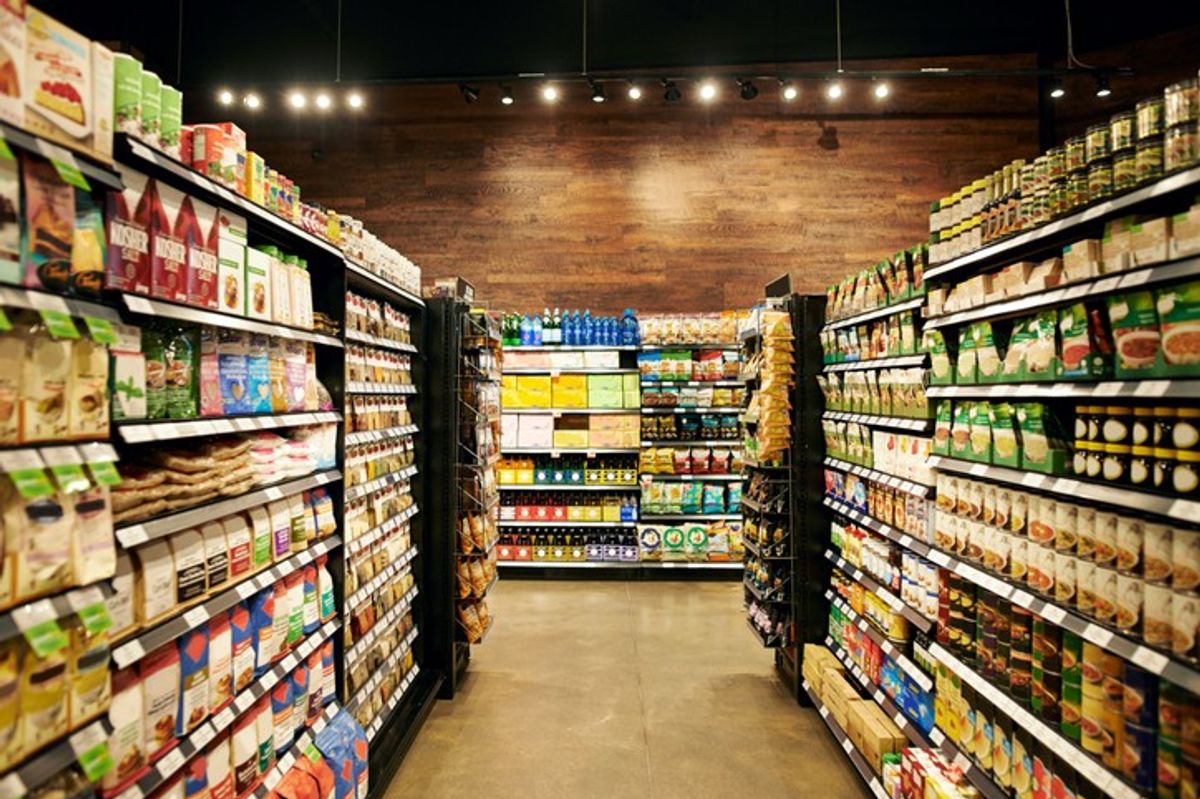Love was in the aisle this Valentine's as Brits spend almost £1 billion on flowers, gifts and dine-at-home meals with £962m was spent across Valentine's Day on food and gifting with £5.8m spent on toiletries gift packs and £19m on fragrances.
According to new data released today by NielsenIQ (NIQ), shoppers spent £137m on fresh ready meals (+2.9 per cent), nearly £11m on champagne (+5.7 per cent), and £38m on sparkling wine. There was also increased spend (+ 4.2 per cent) on impulse/confectionery as shoppers indulged in sweet treats to celebrate.
Discounters were the fastest growing channel (+6 per cent) whilst convenience store sales were down (-0.1 per cent).
Retailers embraced the occasion, with promotional spend contributing 24 per cent of sales, supported by continued investment in price cuts and Dine-In offers. While in-stores sales benefited the most (+4.3 per cent), online sales growth remained muted at +0.7 per cent, with market share declining to 12.9 per cent from 13.3 per cent a year ago.
Shoppers took advantage of these promotions with Valentine's food (excluding drinks) seeing value growth of +5.1 per cent and units growing at +0.6 per cent driven by cakes and morning goods indicating a new and affordable way to celebrate the day.
Over the four weeks, meat, fish and poultry was the fastest growing super category (+8.5 per cent) followed by dairy (+6.4 per cent) and produce (+5.7 per cent) as fresh foods were favoured over packaged grocery (+2.4 per cent) and frozen food growth was weaker (+0.7 per cent and -0.6 per cent units).
Beer, wine and spirits remained in decline (-2 per cent and -2.8 per cent in units).
Despite a slow start to the month, NIQ data reveals that grocery multiples saw their strongest growth leading up to Valentine's Day in the week ending 15th February driven by increased shopper visits (+5.9 per cent) as 17 per cent of households looked to celebrate and make special purchases.
Mike Watkins, Head of Retailer and Business Insight at NIQ said, "Retailers capitalised on the opportunities around Valentine's Day as shoppers wanted to create a special occasion at home.
"With the pinch of the cost of living, many shoppers dined in to save money this year, with premium food options growing and themed meals and gifts very much in vogue for treating loved ones.
"There are three things to consider looking ahead. Firstly, the GfK Consumer Confidence Index for February suggested that people don't expect the economy to show any dramatic signs of improvement and with many household bills, such as energy, water and council tax, increasing over the next few weeks, shoppers will be looking carefully at their discretionary spend."
He add, "Secondly, the recent sales trends in Hospitality from CGA show some weakness. Finally, the increase in food inflation reported by BRC NIQ this week looks to be a turning point.
"The overall impact will be that many shoppers will need to seek out more discounts when shopping, in particular from supermarket loyalty schemes - maybe switching some food and drink away from out-of-home to supermarkets."


